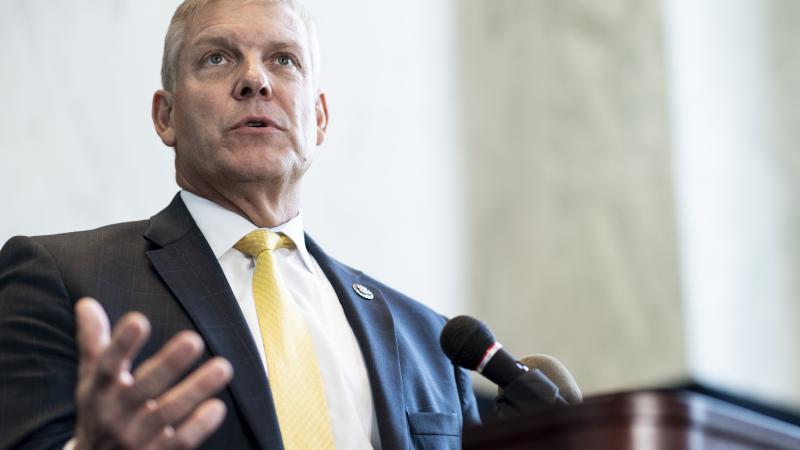DeSantis signs bill banning 'woke indoctrination,' CRT from workplaces, public schools
Democratic state Sen. Shevrin Jones said the bill is “a continuation of a national agenda to whitewash history."
Gov. Ron DeSantis signed HB 7 into law Friday, the first bill in the nation that bans “corporate wokeness” and Critical Race Theory from being used or taught in the workplace and public classrooms.
The bill includes provisions to prevent discriminatory instruction in the workplace and in public schools and defines individual freedoms “based on the fundamental truth that all individuals are equal before the law and have inalienable rights,” the governor’s office said.
“No one should be instructed to feel as if they are not equal or shamed because of their race,” DeSantis said. “In Florida, we will not let the far-left woke agenda take over our schools and workplaces. There is no place for indoctrination or discrimination in Florida.”
The governor and legislature “have taken a stand against discrimination, especially against revisionist history and ideological concepts that are outside Florida’s academic standards,” Education Commissioner Richard Corcoran said. “These dangerous concepts seek to divide Americans, rather than unite them. This legislation affirms that all students, no matter their backgrounds, should be treated as individuals with unique experiences, and that they should be afforded equal opportunities to find success and fulfillment.”
Senate President Wilton Simpson said the legislature was concerned that students and employees were “being pushed to adopt the personal or political viewpoints of employers, teachers or textbook authors,” necessitating the bill.
HB 7, filed by Republican Speaker Pro Tempore Bryan Avila of Miami Springs, passed the House on Feb. 24 by a vote of 74 to 41.
Its companion bill, SB 148, filed by state Sens. Manny Diaz Jr. and Ray Wesley Rodrigues, both Republicans, passed the Senate March 10 by a vote of 24 to 15.
Avila said the bill was designed “to address instruction and trainings that distort historical facts or push students to adopt the personal or political viewpoints of teachers or textbook authors, including divisive ideas that factors such as race or sex primarily determine a person’s character or potential.”
The new law specifies that subjecting an employee or student to a required activity that promotes, advances, or compels individuals to believe discriminatory concepts, constitutes unlawful discrimination. Such concepts include “that members of one race, color, national origin or sex are morally superior to members of another race, color, national origin or sex; A person by virtue of their race or sex, is inherently racist, sexist or oppressive; A person’s moral character or status as privileged or oppressed is determined by race, color, national origin or sex; A person, by virtue of their race, color, national origin or sex should be discriminated against or receive adverse treatment to achieve diversity, equity or inclusion.”
The bill also requires instruction, instructional materials, and professional development in public schools to adhere to principles of individual freedom outlined in the bill to ensure “freedom from indoctrination.” Principles include the concept that no person is inherently racist, sexist, or oppressive solely by virtue of his or her race or sex and that a hard work ethic is fundamental to the right to pursue success.
The bill authorizes discussion of topics like sexism, slavery, racial oppression, racial segregation, and racial discrimination in an age-appropriate manner. But only in a way “that doesn’t indoctrinate or persuade students to a certain point of view that’s inconsistent with the principles of individual freedom,” according to the bill summary. It requires teaching factual information about history, not “subjective indoctrination that pushes collective guilt.”
It expands instruction of African American history, calling for a new “Stories of Inspiration” curriculum to be taught about influential African Americans who made invaluable contributions to the United States under incredibly difficult circumstances. The Department of Education will oversee developing the curriculum inspired by a New Hampshire video series produced in coordination with the Woodson Center.
Democratic state Sen. Shevrin Jones said the bill is “a continuation of a national agenda to whitewash history all because we don't want white children to feel uncomfortable about true Black history,” the Associated Press reported.
While some in the media describe it as racist or limiting discussion about race, it “includes the most substantial expansion of African American history in our public schools in the past 20 years,” Republican House Speaker Chris Sprowls said.













